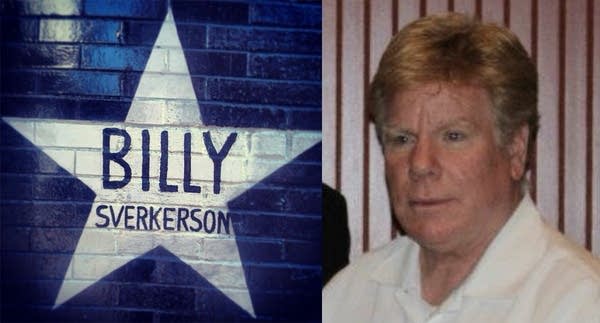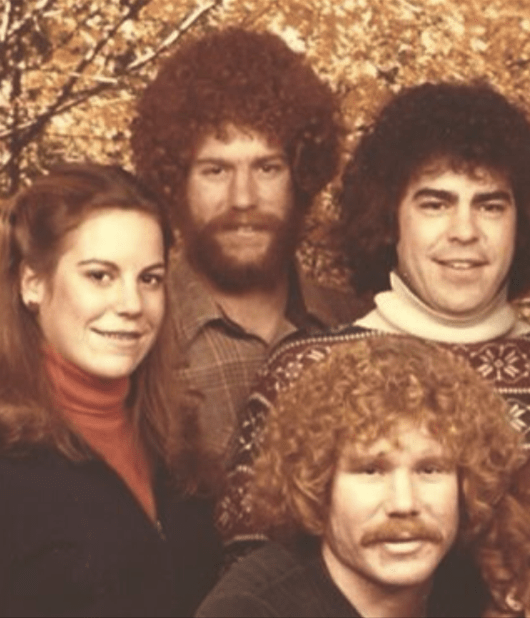First Avenue employee and former 400 Bar manager Billy Sverkerson passes away

November 24, 2013
William Joseph "Billy" Sverkerson, a longtime behind-the-scenes fixture of the Twin Cities music scene who got his start managing the 400 Bar and recently worked backstage at First Avenue, passed away early Sunday morning. He was 60 years old.
Billy came from a large family—he was the fifth of 10 children in the Sverkerson clan—and worked alongside several of his siblings at different points in his long and winding career.
"We grew up out in New Hope, back when it was the Wonder Years kind of times, when everything was innocent and you could run around the neighborhood," recalls Billy's brother, Mark Sverkerson. "We had a cool upbringing."
After attending high school at De La Salle, Sverkerson worked at the Grain Belt Brewery and then spent many summers on the fair circuit, where he would press iron-on t-shirts at state fairs and city carnivals. He got his start in the music business in the late '70s when he started picking up shifts at the 400 Bar, and was promoted to manager of the bar in 1982.
"He started bartending there because one of our older sisters, Jan, started working there," Mark Sverkerson says. "I actually worked there for quite a while, too, during what I like to call 'the golden years.' Run Westy Run and Trip Shakespeare, the Jayhawks—that was my favorite thing, when they came on the scene. That's the place where they blew up, on that tiny stage that Conrad built."
Conrad Sverkerson, best known as the longtime stage manager at First Avenue, recalled Billy's role in discovering the Jayhawks during an interview last year: "Bill had a cancellation at the 400, and he had this demo tape from this band called the Jayhawks, and he called them up and they came down and played and he liked them. And they played the 400 for a long time."
"Billy would come up with these things—because he worked the fair circuit, he would have to come up with these things, you'd have to get people's attention," Mark remembers. "So at the end of bar time, when you had to get people out of the bar, Billy would say, 'You don't have to go home but you can't stay here,' and 'Two doors, no waiting.'"
The former saying became such a trademark of the 400 Bar experience that it even made its way into a song that Trip Shakespeare's Dan Wilson had penned for his new band, Semisonic. "One reason that ‘Closing Time’ took the shape it did, was it was my little tribute to the bar,” Wilson told me earlier this year. “The song’s based on being rousted out of the 400 Bar. I didn’t really think at the time, ‘Oh, it’s gonna be a huge hit and everyone for years on end will know the words.’”

Billy left the 400 Bar in the early '90s and went on to work for several other local bars and restaurants, including D'Amico Catering and downtown sports bar Hubert's, before landing at First Avenue to work alongside Conrad backstage in 2005.
"Billy was the guy who would take care of the bands," Mark says. "He'd go pick 'em up from wherever they were, and while they were in town he would take them wherever they needed to go. In the past few weeks, since Billy got sick, Conrad has told me about 10 times that he needs to hire two people to do what Billy was doing."
Billy began encountering health problems three years ago and was diagnosed with aplastic anemia—"in essence, his immune system is attacked by his own body, so he can't fight off other things," Mark explained—and was managing his disease with medication and regular doctor visits. But two and a half weeks ago, Sverkerson went to the doctor with what was thought to be pneumonia, and pictures of his lungs revealed that he had an aggressive form of cancer that was quickly spreading to other organs.
"He wasn't a smoker, but it was because his immune system couldn't fight these things off," Mark says. "They tried to figure out a treatment plan, but it was stage 4. They did one round of chemo, and then last Thursday they were scheduled to do second round, but the doctor said, 'This isn't going to happen.'"
As news of Sverkerson's passing spread on social media today, the memories and stories about Billy have begun rolling in, and musicians have mentioned time and again how kind and generous he could be, and how essential he was to the experience of playing the club.
"Everyone absolutely loved Billy," says First Avenue general manager Nate Kranz. "While the other guys were setting up the equipment on stage, Billy's role was to make sure bands were as comfortable as possible. He did the catering, drove bands wherever they needed to go, and was a tour guide—he was best possible tour guide you could have."

Kranz and his staff at First Avenue had such a deep admiration for Billy's work that they gave him what amounts to the highest of honors in the local rock 'n' roll world: His own star on the side of the building.
"They took a big picture of all of them on the stage, all the employees, and sent that to Billy first, then they painted the star and took a picture of that and sent it to him," Mark says. "I'm glad he was still at a state where he could process that, and appreciate it. He loved that. He was so proud to be a member of the First Avenue family."
"He had a huge impact on us, and on the bands," Kranz says. "Every band that has come through over the past few weeks has asked about him, and asked where he was. He was a friend of everybody that worked there."
"He had lots of other friends in the downtown bar business," Mark says. "He was always the bachelor, never got married, didn't have any kids, but he'd go down to the Loon every night that [Loon Cafe co-owner] Tim Mahoney was closing, Billy would show up late and talk to Tim and keep him company while he shut the bar down. And he used to do that over at Eli's on Hennepin—they called him Nightwatch, because he would be the one that would come in at the end of the night and say 'Here's what I saw, here's what's going on on the streets."
"He was a storyteller," Mark says. "He would tell a story like you wouldn't believe."

